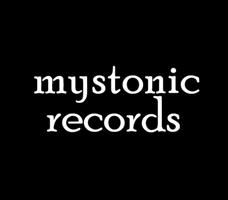When will the piracy end? It never will.
When will it become acceptable? When it's pursued and enforced in a reasonable, sensible and sustainable way.
Compare speeding to piracy and you have some good parallels.
The majority of drivers have sped at some time or another.
A few drivers will never speed because they just won't do it. It's wrong.
Without any traffic enforcement, we would have a uncontrollable death trap of a road system.
The enforcement doesn't stop speeding, but just minimizes it to a reasonable level. Penalties are affordable, by anyone who can afford to drive.
It keeps most people in line. They go a tiny bit over the speed limit and they know they are OK. They know that it is foolish to run down the highway at 100 because they would face a heavier penalty in the chance they were caught.
The die hard speeders are going to do it anyway, risks be damned. They are the minority.
The highways are (relatively) safe.
The vast majority arrive at their destination each and every time they go somewhere.
The money collected from the speeders pays for not just the police, but usually for other mischief as well.
Piracy ends with several real, tangible cases of GD enforcement. not legal cases that go nowhere, and that only encourage the opponent.
i think they were on the right track when they started going after the major single person offenders. not 6 million dollar lawsuits to women who weren't worth 30k, but real enforceable penalties for individuals. Like some 30 day jail sentences with some sensible 10k max fines. really foul up a persons life, and make it seem like a real problem to get caught. again, not make a legal travesty case like the woman who got sued for millions who obviously couldn't afford to pay a dime of it. - it's not that she wasn't responsible, but the industry legals are morons to chose making someone a martyr and push forward a judgment that will result in no actual money coming in, and make the general public think that the music industry was actually crazier than they all had earlier thought.
so yeah, pick out 100 top individuals, develop a track record over a month or two, then launch a publicized campaign and get some real penalties enforced. the moment the general public starts seeing ACTUAL enforcement, instead of all this overly litigious and meaningless hooptydo, then there will be a vast reduction in the mainstream file sharing actions that "everyone" is participating in. then there will just be the minority of rebels, who would be doing it anyway.
not to mention, you have to figure they already have a wicked bunch of lawyers and consultants on retainer, accomplishing naught. if they could start to collect even some thousands from some top violators, then there would be SOMETHING coming in as a result of there actions, and if it started out smaller they wouldn't piss off the general public any further with the whole "bigshot record companies trying to squeeze ridiculous megabucks out of normal schmoes" perceptions.
But there has to be something.
It has to be perceived as reasonable to the public.
It has to be consistently applied.
I can think of no greater analogy than speeding as a model for policing this system.
Too bad they aren't looking for a project manager with a real plan of attack that would actually make sense. ha!
And I agree with psalad, this has been off the chain since they applied windows GUI to the existing MIRC technology (sorry, uh, napster). They need to get some tangible laws written that don't get hung up on particular lines of code, but rather just state it outright like it needs to be stated.
and like they do with private property in New York, they say if you own land you need to put up signs showing it is "posted" and "no trespassing", putting the burden on the land owner.
in montana, they just say if you go off the damn highway onto someone's land, you are responsible to get their permission first or otherwise you are trespassing, putting the burden where it belongs
Perhaps-
"engaged in any action that allowed for any file or portion of a file to be stored for any length of time on a computer they were using, and which was named in any way to reflect it would be reasonable to assume that it was a popular, and / or commercial release which would by any and all means suggest it would not be available for free."
"to download a file of any music using the internet, it must be accompanied by a digital certificate or digital receipt of sale, or must be listed with certificate as public domain. otherwise, you are liable"
I'm no lawyer (thank god) but a lawyer's version of that would cover napsters, newsgroups, and torrents, no?
Sunday, June 6, 2010
Subscribe to:
Posts (Atom)
